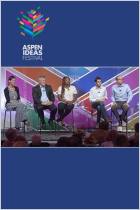Join getAbstract to access the summary!

Join getAbstract to access the summary!
Jason Brennan
The Right to Vote Should Be Restricted to Those with Knowledge
Aeon, 2016
What's inside?
It’s been said that democracy is where any two idiots can outvote a genius. Should that change?
Recommendation
Jason Brennan – a professor of strategy, economics, ethics, and public policy at Georgetown University – reflects on the benefits of limiting the right to vote to knowledgeable, well-informed people. He examines the inherent flaws of democracy and suggests “epistocracy” as an alternative. Brennan fails to address some of the disadvantages of the system he commends: Would people really accept the legitimacy of a government that they weren’t allowed to elect? Still, getAbstract recommends this provocative essay as food for thought for democracy enthusiasts and skeptics.
Summary
About the Author
Jason Brennan is an associate professor at Georgetown University and specializes in politics, philosophy and economics. He is the author of numerous books, among them Against Democracy.


















Comment on this summary
Thus, how transparent and "true" could the process for this to ever occur be?